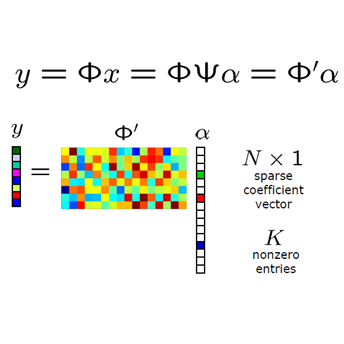Compressed Sensing (CS) comprises a wide range of theoretical and applied techniques to recover signals given a partial knowledge of their coefficients. It finds its applications in several fields, such as mathematics, physics, engineering, and many medical sciences, to name a few. Driven by our interest in the mathematics behind Magnetic Resonance Imaging (MRI) and Compressed Sensing (CS), we use convex analysis techniques to determine analytically the optimal tuning parameters of the space-variant LASSO with voxel-wise weighting, under assumptions on the fidelity term, either on the sign of its gradient or orthogonality-like conditions on its matrix. Finally, we conclude conjecturing what the explicit form of optimal parameters should be in the most general setting (hypotheses-free) of the space-variant LASSO.
翻译:压缩遥感(CS)由一系列广泛的理论和应用技术组成,在部分了解其系数的情况下恢复信号,在数学、物理学、工程学和许多医学科学等若干领域发现其应用,仅举几个例子。 出于我们对磁共振成像(MRI)和压缩遥感(CS)背后的数学的兴趣,我们使用convex分析技术,根据对忠诚术语的假设,在轨迹标志或矩阵上类似梯度条件的标志下,分析地确定空间变量LASSO的最佳调试参数,在对等性术语的假设下,以氧化法加权。最后,我们得出了在空间变量LASSO的最一般情况下(无假称)最优参数的明确形式是什么。



